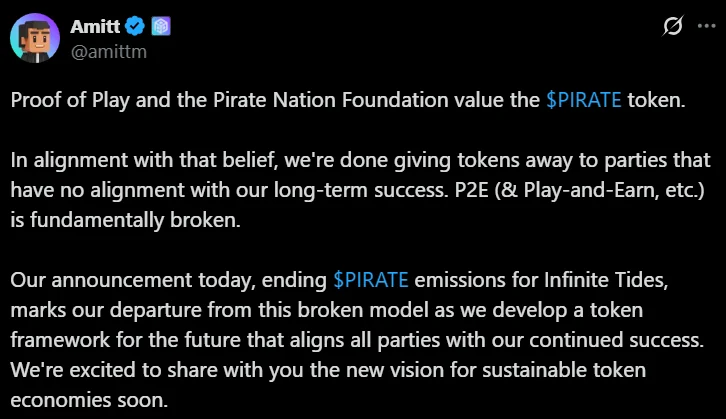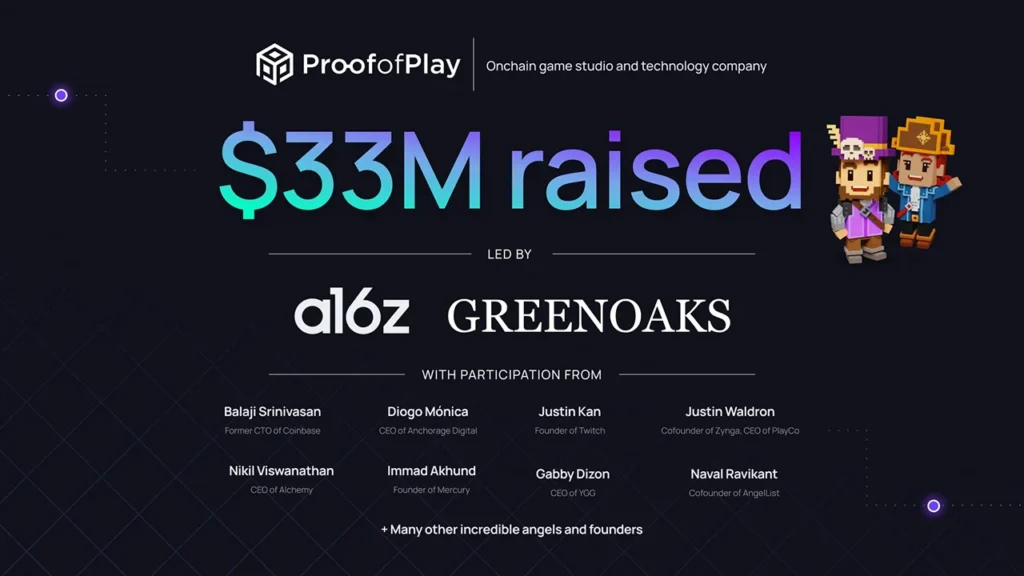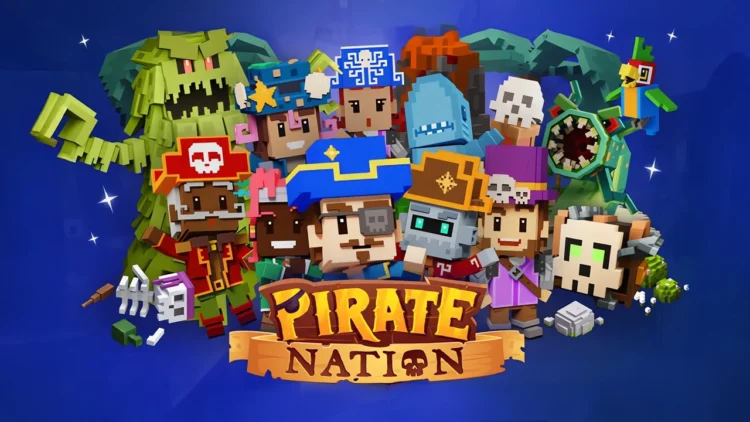Quick Take
- Proof of Play will sunset Pirate Nation and its chains after concluding token incentives
- CEO calls play-to-earn “fundamentally broken” as $PIRATE token enters a new phase
- Final event allows players to burn game assets for future reward eligibility
In late July, onchain game developer Proof of Play announced it would stop all $PIRATE token emissions tied to its flagship title Pirate Nation. Just weeks later, the studio confirmed it is shutting the game down entirely, marking a decisive move away from its early incentives model and fully onchain operations.
Pirate Nation will be sunsetted alongside its custom Apex and Boss chains within 30 days. Proof of Play cited a lack of sustained audience traction and the high operational cost of maintaining its dual-chain setup. While the game served as a testbed for the studio’s composable infrastructure and verifiable random number generator (vRNG) technology, Proof of Play says its future focus is now centered on profitability, accessibility, and abstracting away blockchain complexity from the end user.
“We love Pirate Nation and believe we developed great onchain tech that was proved out through the game,” the company said in a statement. “But the demand for the fully onchain version of Pirate Nation simply isn’t there to sustain operation indefinitely.”
Play-to-Earn Is “Broken,” Says CEO
The changes follow an earlier announcement made during the launch of Infinite Tides Season 3, where Proof of Play removed all $PIRATE token rewards from the event. CEO Amitt Mahajan, known for co-creating FarmVille, was blunt in his assessment of token-based incentives.
“Play-to-Earn is fundamentally broken,” Mahajan said. “We’re done giving tokens away to parties that have no alignment with our long-term success.”

While Proof of Play says the play-to-earn model is broken, other games continue to grow under it. Cambria recently closed Season 2 with over $1.5 million in player-funded ETH rewards and 20,000 players. Its recently launched Duel Arena mode has also seen $2 million in wagers. Proof of Play now joins a growing pool of games that have shut down after failing to build sustainable systems around play-to-earn, even as others continue to find traction.
Pirate Nation previously offered token incentives through gameplay and events. The $PIRATE token, launched earlier this year, rewarded engagement and ownership, with support for player-owned characters and items stored entirely onchain. Its new role is expected to shift under a redesigned economic model, details of which have not yet been disclosed.
Founder’s Pirates NFT holders will receive one final allocation of $PIRATE tokens. After that, the NFTs will become non-claimable community identity assets. The studio says this change is meant to simplify its ecosystem and position $PIRATE as the core asset for future alignment.
$33M Later, Pirate Nation Is Out
Proof of Play raised $33 million in 2023 in a round led by Andreessen Horowitz (a16z). At the time, the team stated its mission was to “build fun, complex, and innovative games that push the limits of blockchain technology.”
Much of that vision centered around fully onchain gameplay and ownership. Pirate Nation served as the studio’s flagship product and proof-of-concept for what decentralized game design could offer. Yet the team now says that the model no longer aligns with their business reality or user behavior.

“We want our products to be fun, profitable, and so broadly accessible that the end user would never know they’re interacting with crypto if the application didn’t say ‘Powered by Proof of Play,’” the studio said.
In community channels, players have questioned whether the company can sustain operations, with some asking how much of the $33 million funding remains. A team member responded in Discord, saying: “I cannot guarantee the 2nd can be answered but please ask it this evening?”
The $PIRATE token remains active, and Proof of Play says it will unveil its new economic framework in the coming weeks.







